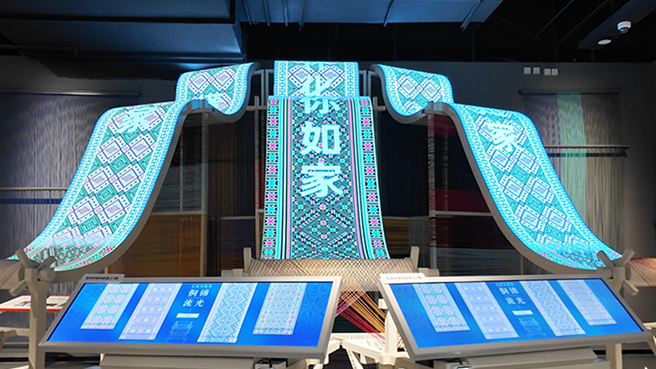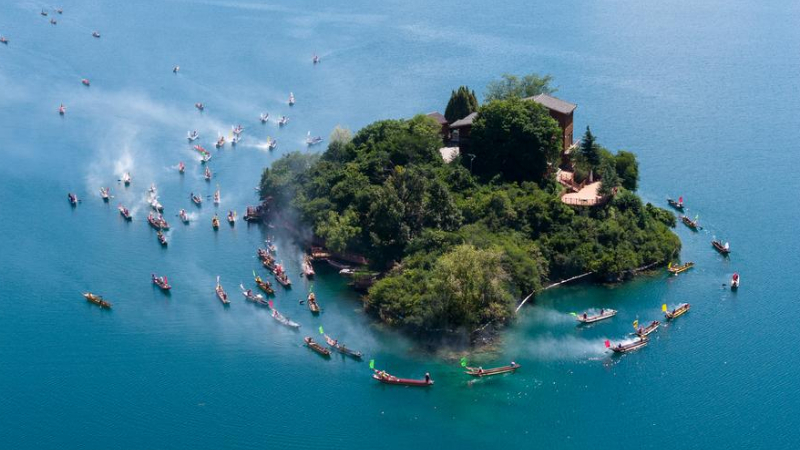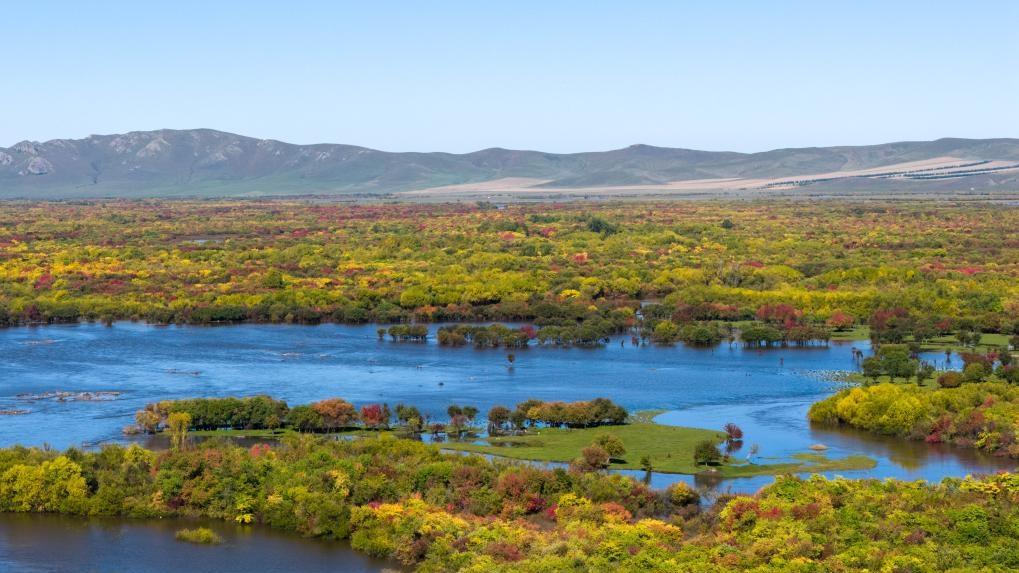Feature: Japanese memorial museum fosters spaces to pass on war history for young people
NAGANO, Japan, Sept. 19 (Xinhua) -- "We need to let young people understand what exactly Japan did in the past and seriously reflect on the root causes of such mistakes," said Hidefumi Terasawa, director of Japan's Manmou Kinenkan, in a recent interview with Xinhua.
Located in Achi Village in the mountains of southern Nagano Prefecture, the Manmou Kinenkan, or the Memorial Museum for Agricultural Emigrants to Manchuria, serves as a memorial museum dedicated to the Japanese agricultural emigrants who were sent to Northeast China under governmental schemes in the early 20th century.
Established and operated by a Japanese civic organization, the museum aims to faithfully convey historical facts and enable the next generation of Japanese to better understand wartime history and the significance of peace.
On Sept. 18, 1931, Japanese invaders brazenly launched the September 18 Incident. In 1936, Japanese militarists announced a plan to send 1 million Japanese farm households to Northeast China, organizing "pioneering groups" to carry out economic aggression in the region.
To deceive Japanese farmers into responding to the emigration call, Japanese militarists launched a diverse propaganda campaign within the country. "At that time, the authorities claimed that those who emigrate to 'Manchuria' would be allocated 20 choubu (about 20 hectares) of farmland there, so my impoverished father signed up," Terasawa recalled. His father then left the poor rural area and moved to Northeast China, dreaming of a prosperous life there.
According to reports, the "pioneering groups" primarily consisted of two kinds. One was the "pioneers" who migrated with their entire families, accounting for approximately 70 percent of the total "pioneer groups," while the other consisted of teenagers who formed their own groups, accounting for about 30 percent.
Terasawa said that these people initially thought they would clear land and cultivate new fields upon arrival in China, but instead discovered that most houses and fields had been forcibly occupied, and local Chinese residents had been expelled.
As the war intensified, young and able-bodied Japanese men from the "pioneering groups" were continuously drafted into military service. By August 1945, the Japanese Kwantung Army, realizing that defeat was inevitable, chose to conceal the situation and secretly retreated, abandoning the remaining elderly, weak, sick, and women and children of the "pioneering groups" at the front lines of the war. Members of the "pioneering groups" fled in panic, and some chose to commit suicide, while many children were left behind in China, becoming orphans and being raised by kind-hearted Chinese people.
"For the Chinese, those Japanese children were, in a sense, descendants of the enemy. But because of the care given by the Chinese, the lives of many orphaned children left behind were saved," Terasawa said, adding, "For this, I am sincerely grateful to the Chinese people. More Japanese should be made aware of this fact."
"The so-called emigration plan of the Japanese militarists was essentially an invasion," Terasawa said, noting that it has been 80 years since the end of the war, but many Japanese, especially those born after the war, still do not know this history.
"Through my father's personal experiences, I gained an understanding of this history, and I believe it must be preserved," Terasawa said. "To avoid repeating the same mistakes, we need to seriously reflect on the root causes of those mistakes and learn from them. Young people, in particular, need to understand what Japan did in Asia in the past. Only by fully understanding this history can Japan better engage with other countries."
Terasawa said that the memorial museum attracts visitors across a wide age range, from elementary school students to the elderly. Today, more and more young people are visiting the museum.
"Some say children can't understand such complex history," Terasawa said. "But I don't think so. I believe it's very important for adults to try their best to present this history to children in a way they can understand."
At the end of the interview, Terasawa showed Xinhua the reviews written by visitors to the museum. "Although I knew there was a war, I had no idea of such a tragic event. I will always remember this history," wrote a 13-year-old boy from Oshika Village in Nagano Prefecture. A visitor from Tokyo wrote: "Remember the past, and it will serve as a lesson for the future. War is absolutely unacceptable!"
Photos
Related Stories
Copyright © 2025 People's Daily Online. All Rights Reserved.









